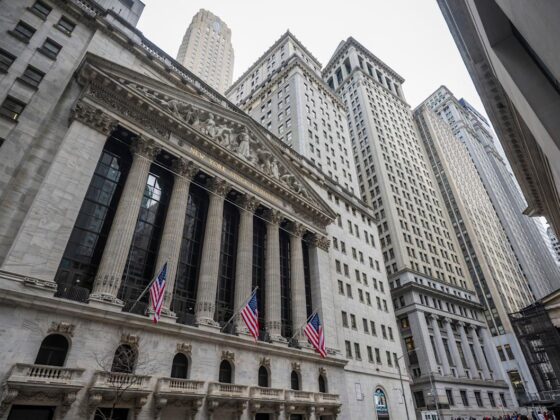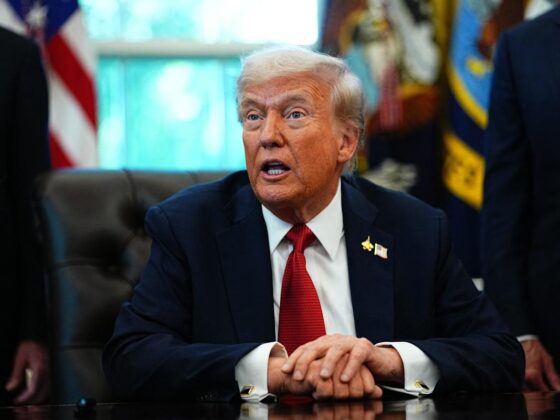US stocks suffer worst quarter since 2022 amid tariffs fears
Two major US stock indexes ended their worst quarter in over two years, with the S&P 500 dropping 4.5% and the Nasdaq dipping 10.4%.The Dow Jones dropped 1.3%, marking its first consecutive monthly loss since October 2023, as the broader market faces uncertainty ahead of Trump's new tariffs.
unbranded – Newsworthy
- Additionally, Pfizer pledged a $70 billion investment in U.S. manufacturing and will participate in TrumpRx.gov, a new government-backed drug discount platform.
- The deal is seen as a possible template for the rest of the pharmaceutical industry.
Wall Street soared to fresh record highs during the week, brushing aside the 21st U.S. government shutdown in history and a missing jobs report, as investors doubled down on bets for interest rate cuts and cheered strong gains in pharmaceutical and AI-driven tech stocks.
The S&P 500, Nasdaq 100, Dow Jones Industrial Average and Russell 2000 all reached record highs Oct. 3, as traders largely ignored the budget impasse in Washington, D.C., and focused instead on corporate optimism and monetary easing.
The Bureau of Labor Statistics failed to publish its monthly jobs report Oct. 3 due to the shutdown, but markets leaned heavily on private data pointing to labor market softening.
The ADP Employment Report showed the largest private-sector job loss in over two years, while the ISM Services PMI (Purchasing Managers' Index) recorded its fourth consecutive month of contraction in its employment component.
These signs reinforced expectations that the Federal Reserve could lower again its benchmark rate to 3.75%-4% at its October meeting, further fueling risk appetite.
Health care stocks were among the top performers. Pfizer soared after striking a landmark deal with President Donald Trump's administration.
The agreement commits Pfizer to apply most-favored-nation pricing — aligning U.S. Medicaid drug prices with the lowest prices paid by other developed nations. In exchange, the company will avoid tariffs on branded drugs for three years.
Additionally, Pfizer pledged a $70 billion investment in U.S. manufacturing and will participate in TrumpRx.gov, a new government-backed drug discount platform.
The deal is seen as a possible template for the rest of the pharmaceutical industry. Shares of Eli Lilly, Thermo Fisher, Merck & Co. and Amgen all logged double-digit gains over the week.
The AI-driven tech rally rolled on, with Nvidia Corp. hitting a staggering $4.6 trillion market capitalization, driving the total value of the so-called Magnificent Seven tech giants to $21 trillion.
Risk appetite spilled into speculative assets as well. Bitcoin climbed above $121,000, nearing its August highs.
Shares of Michigan automakers saw a mixed performance. General Motors fell 3% despite EV sales doubling from 2024, Ford rose 2% and Stellantis surged 14% as sales rose after eight quarters of declines.
GM, Ford and Stellantis reported year-over-year sales growth of 8%, 8.2% and 6%, respectively, in the latest quarter.
Benzinga is a financial news and data company headquartered in Detroit.












